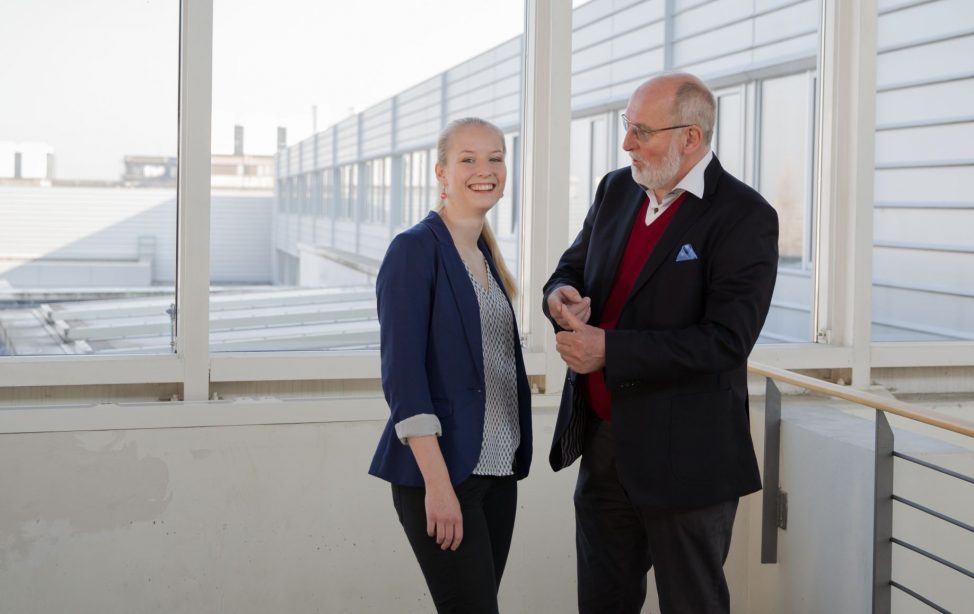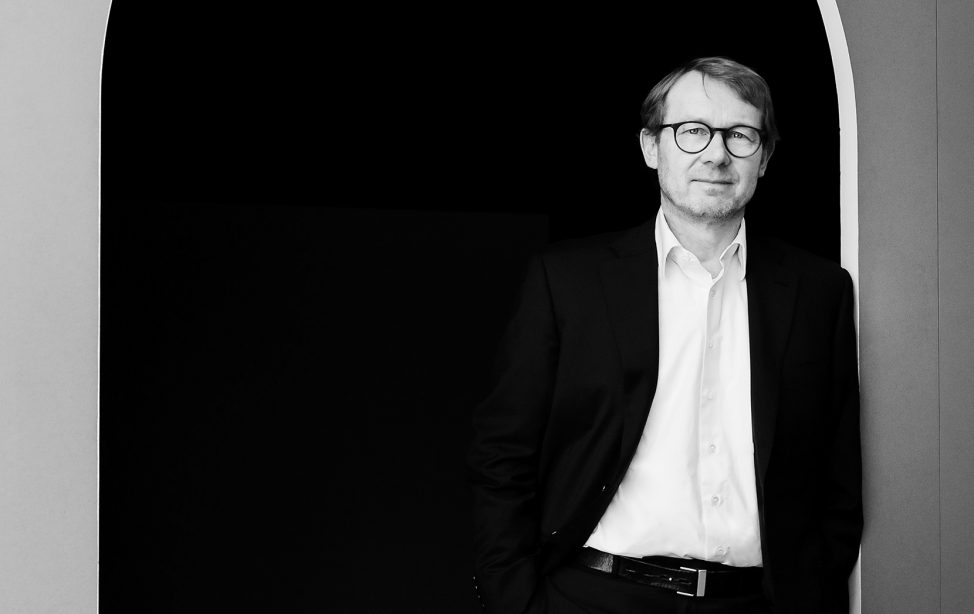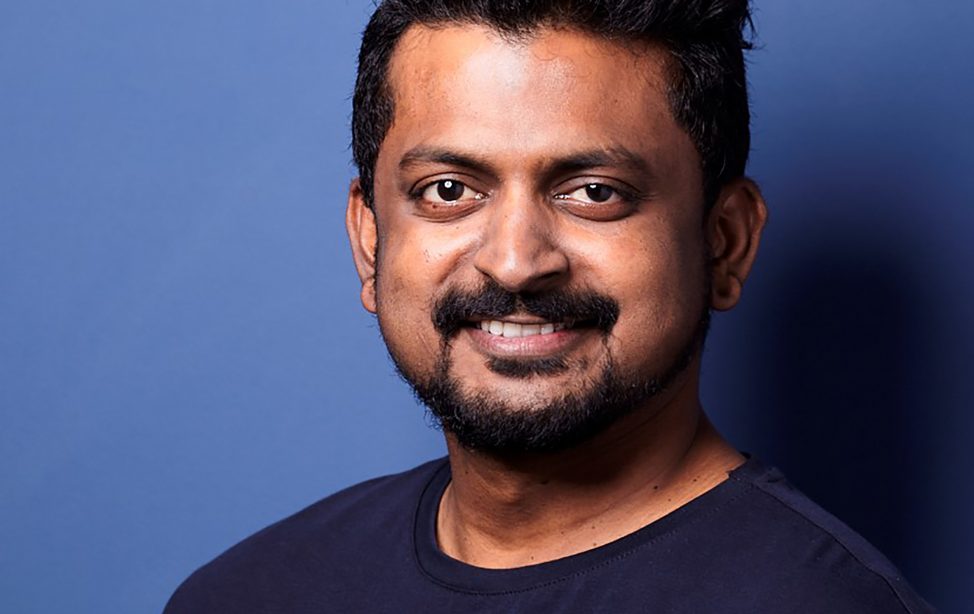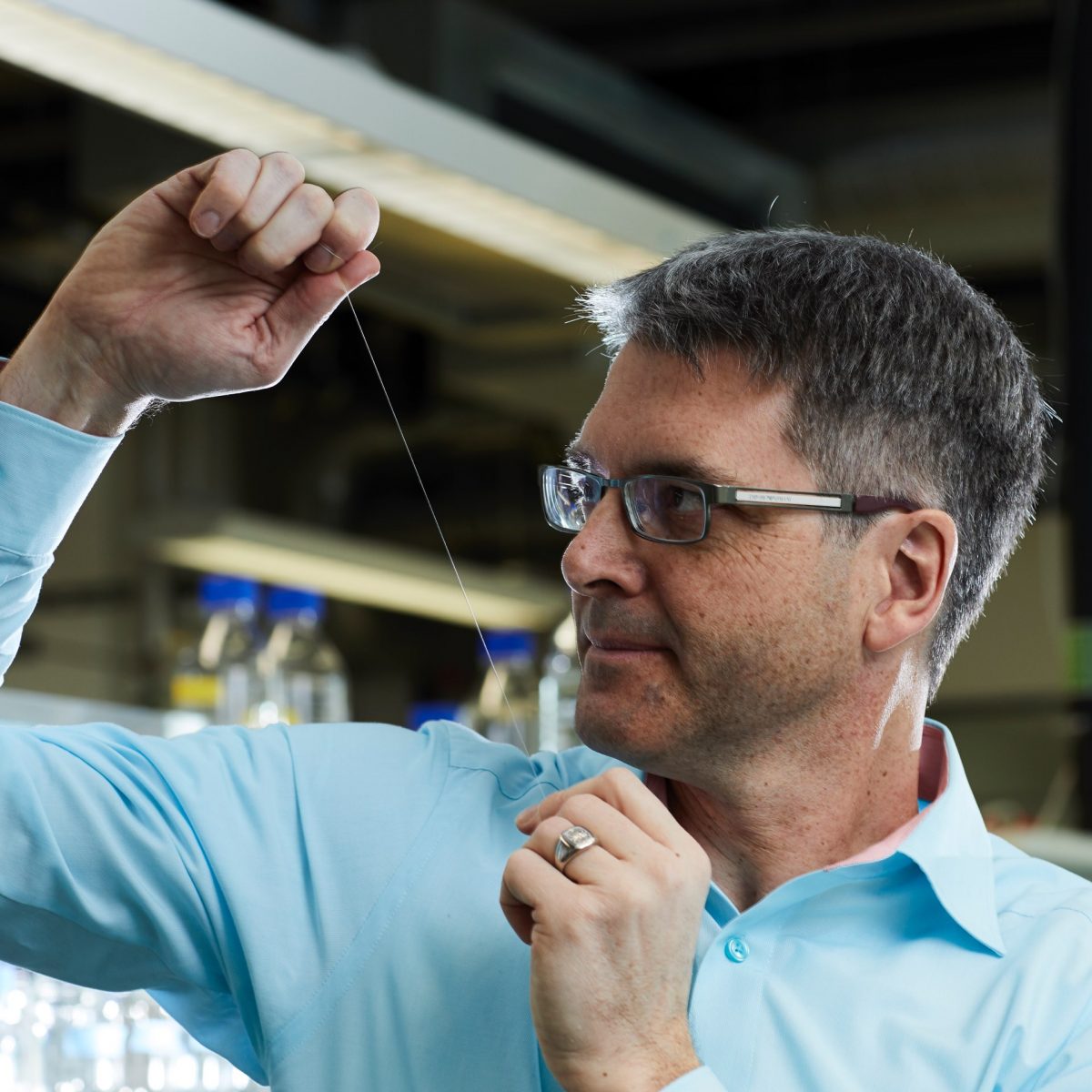
As an extremely durable material Thomas Scheibel's artificial spider silk has opened up completely new possibilities for the textile and cosmetics industries, and for medicine (Image: EPA).
Thomas Scheibel vividly remembers the time at TUM and his long-time mentor, who frequently put aside his own interests in favour of his pupils’. He gave him creative freedom and encouraged him to always think outside the box and try even the craziest ideas. What Thomas Scheibel also found exceptional was the interdisciplinary cooperation of biologists, chemists, biochemists and engineers offered at TUM campus Garching. “At TUM I was able to conduct highly interdisciplinary research while drawing on excellent technological equipment.”
Spider silk without spiders
During his time at TUM Thomas Scheibel contributed to nine issued patents. Always at the core was his interest in developing biomaterials, which serve a useful purpose for humanity. One of the most exciting materials of the future being used today is certainly the artificial spider silk he developed. In 2004 he made a scientific breakthrough when he managed to get genetically modify E. coli bacteria to produce spider silk proteins. A technical process turns them into artificial silk fibres.
At TUM it was possible to conduct research in an ideal way.
Division of labour, team work and trust
Thomas Scheibel himself never held an operative role in the company. Instead he stuck to his area of expertise: “I tinkered around and developed and picked those university projects that were promising – and which the others, such as the management and industry experts, where then able to further develop for commercial production. This fundamental division of labour was one of the crucial decisions during the company’s establishment and has been very good for its development.”
He also advises young entrepreneurs to adopt such a division of labour and team work based business model, with mutual trust and good human relations as further essential elements. “The best idea” the protein chemist says, “is useless without a good team, in which each member takes the company forward with their expertise.”
Today Thomas Scheibel is trying to pass on to the young researches at the University of Bayreuth what he has learnt from his mentor Johannes Buchner at TUM and from the establishment of the spin-off. Currently one of his doctoral students is located in the Columbian rain forest. So far she was able to discover 26 still unexplored spider species. Who knows, which useful materials these animals will lead Thomas Scheibel to. If none, it will be the mussels he is doing research on now. “I don’t have to do just silk”, he says with a smirk, “mussels produce super interesting glues. That’s also exciting.”
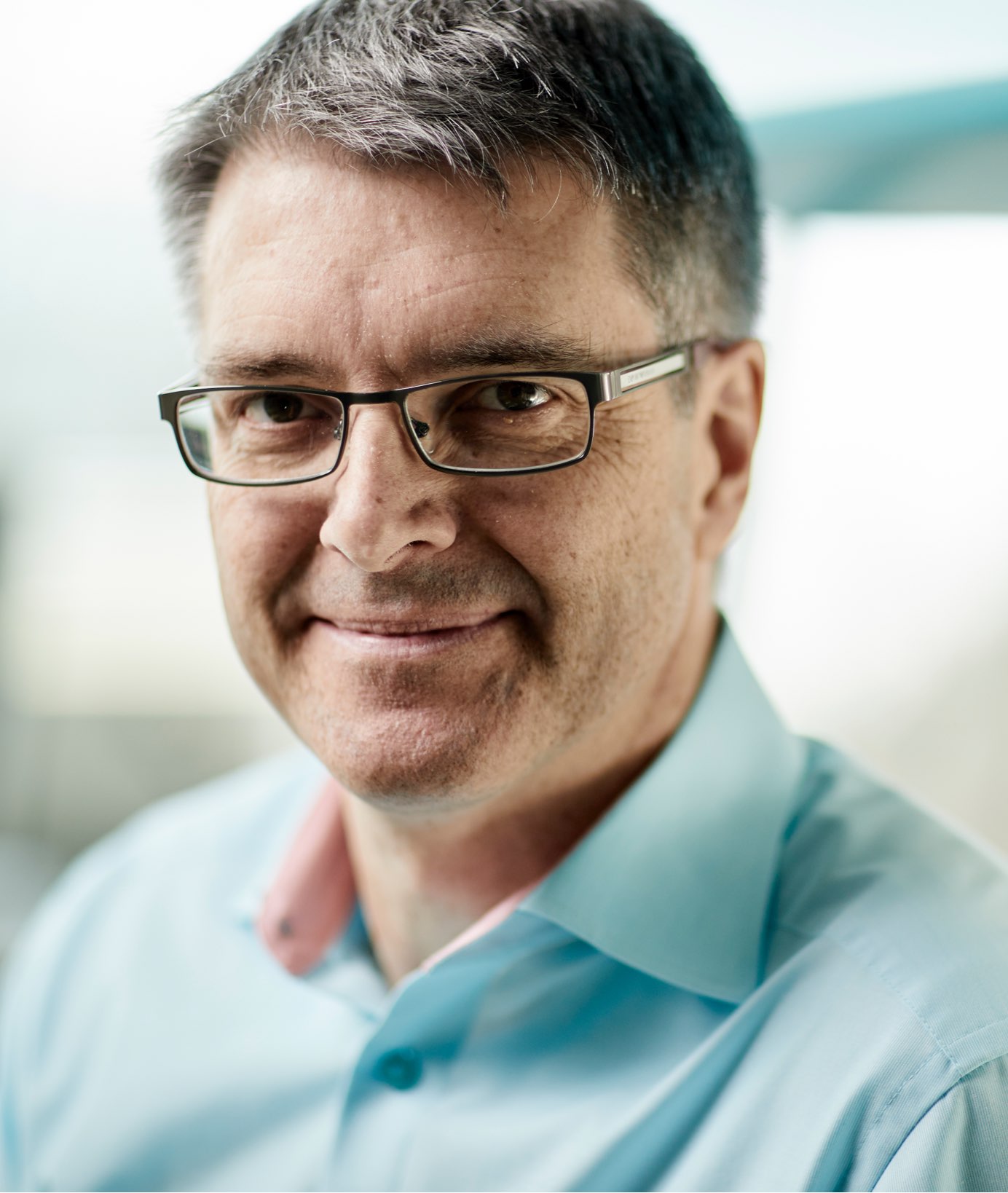
Prof. Dr. Thomas Scheibel (Image: EPA).
Habilitation Chemistry 2007
Thomas Scheibel has studied Biology and Biochemistry at the University of Regensburg and graduated with a diploma degree from the Chair of Biophysics and Physical Biochemistry in 1994, where he also completed his doctorate in 1998. As a post-doc he did research at the University of Chicago in the Department of Molecular Genetics and Cell Biology for three years.
From 2001 onwards he was a research assistant and group leader at the Chair of Biotechnology at TUM, where he finished his habilitation in Biochemistry in 2007. Just a few months later he was called to the University of Bayreuth to set up and run the new Chair of Biomaterials at the Faculty for Engineering. Thomas Scheibel is a visiting professor at the University of Borrdeux and the Universidad Polytecnica de Madrid.
Since 2016 he is the Vice President of the University of Bayreuth for International Affairs & Equal Opportunities. With his invention of artificial spider silk and the start-up AMSilk, whose co-founder he is, he was one of the finalists at the European Inventor Awards 2018. His ground-breaking research has gained him numerous awards, such as the Innovation Award of the Bavarian Prime Minister (2006), the Heinz-Maier-Leibnitz-Medal (2007), the Beckurts Award (2008), and the DECHEMA-Award of the Max-Buchner Foundation (2013). In 2014 he became a member of the German National Academy of Science and Engineering (acatech).
